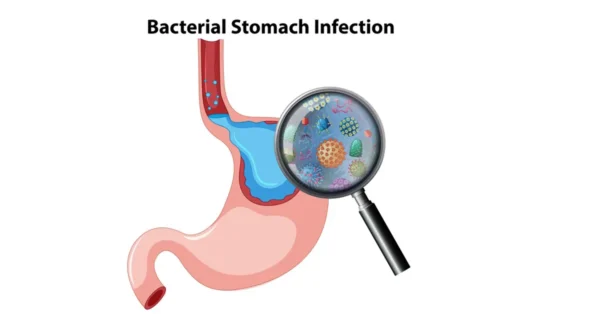Helicobacter pylori .
Helicobacter pylori, often abbreviated as H. pylori, is a type of bacteria that infects the stomach lining and the upper part of the small intestine. This bacterium is notorious for causing a variety of gastrointestinal issues in humans. In this piece, we will explore the realm of H. pylori, exploring its symptoms, causes, diagnosis, treatment, and prevention.
Introduction
What is Helicobacter pylori?
Helicobacter pylori is a spiral-shaped bacterium that enters the body and settles in the digestive tract. It is primarily responsible for the development of chronic gastritis, peptic ulcers, and in some cases, stomach cancer. This pathogen is quite resilient, as it can survive in the acidic environment of the stomach.
Prevalence and significance
H. pylori is one of the most prevalent bacterial infections worldwide. It is estimated that around 50% of the global population is infected with this bacterium. Its presence is more prevalent in developing countries, and it often goes undetected for years. Understanding H. pylori is crucial because it can lead to severe health issues if left untreated.

Symptoms of Helicobacter pylori infection
Common symptoms
Many individuals infected with H. pylori do not experience any symptoms. However, when symptoms do manifest, they may include abdominal pain, bloating, burping, nausea, and vomiting. These symptoms are often mistaken for other digestive issues.
Atypical symptoms
In some cases, H. pylori infection can lead to more severe problems, such as peptic ulcers, gastritis, and even stomach cancer. Atypical symptoms may include weight loss, loss of appetite, and blood in the stool or vomit.
Complications
Ignoring H. pylori infection can lead to complications like bleeding ulcers and increased cancer risk. Therefore, timely identification and therapy are essential.
Causes and risk factors

Transmission of H. pylori
H. pylori is mainly transmitted through oral-oral or fecal-oral routes. It can be passed from person to person through direct contact or ingestion of contaminated food or water.
Factors that increase the risk of infection
Several factors increase the likelihood of H. pylori infection, including crowded living conditions, poor sanitation, and living in an area with a high prevalence of the bacterium.
Diagnosis
Medical history and physical examination
Doctors often start by taking a detailed medical history and performing a physical examination. They look for signs and symptoms that may indicate an H. pylori infection.
Diagnostic tests
To confirm the presence of H. pylori, various diagnostic tests can be employed, including blood tests, stool tests, breath tests, and endoscopy with biopsy.
Importance of early detection
Early detection of H. pylori infection is crucial as it can prevent the development of severe complications. Timely diagnosis allows for effective treatment.
Treatment options
Antibiotics and acid-reducing medications
The primary treatment for H. pylori the treatment for the infection typically requires a mix of antibiotics and medications that reduce stomach acid. This approach aims to kill the bacteria and alleviate the associated symptoms.
Lifestyle changes
In addition to medications, certain lifestyle changes such as avoiding spicy foods, caffeine, and alcohol can help in managing symptoms and preventing the recurrence of infection.
Alternative therapies
Some individuals turn to alternative therapies, such as probiotics and herbal supplements, to manage H. pylori infection. Nonetheless, these should be employed prudently and with the supervision of a medical expert.
Prevention strategies
Hygiene and sanitation
Maintaining good personal hygiene and practicing proper sanitation measures can reduce the risk of H. pylori infection. This includes regular handwashing and consuming safe and clean food and water.
Reducing exposure to risk factors
To prevent H. pylori infection, it’s essential to reduce exposure to risk factors, such as avoiding close contact with infected individuals and adopting a healthy lifestyle.
Conclusion
In conclusion, Helicobacter pylori is a bacterium that can cause a range of digestive problems, from mild discomfort to severe complications. Understanding its symptoms, causes, diagnosis, treatment, and prevention strategies is crucial for maintaining good digestive health. Early detection and appropriate treatment can significantly improve the outcomes for individuals with H. pylori infection.
5 Unique FAQs
1. Can H. pylori be transmitted through casual contact?
H. pylori is mainly spread through oral-oral or fecal-oral pathways. While casual contact can potentially lead to transmission, it is less common than other modes of infection.
2. Is there a vaccine for H. pylori?
Currently, there is no vaccine available for H. pylori. Prevention mainly focuses on hygiene and sanitation.
3. Are all H. pylori infections symptomatic?
No, many individuals infected with H. pylori do not experience any symptoms. It can remain dormant for years without causing noticeable issues.
4. How is H. pylori-related stomach cancer detected and treated?
Stomach cancer associated with H. pylori is typically detected through endoscopy and biopsy. Treatment typically includes a mix of surgical procedures, chemotherapy, and radiation therapy.
5. Can H. pylori infection recur after successful treatment?
Yes, it is possible for H. pylori infection to recur, which is why it’s essential to follow the prescribed treatment regimen and make necessary lifestyle changes to reduce the risk of reinfection.
Important Notice:
The information provided on “health life ai” is intended for informational purposes only. While we have made efforts to ensure the accuracy and authenticity of the information presented, we cannot guarantee its absolute correctness or completeness. Before applying any of the strategies or tips, please consult a professional medical adviser.















